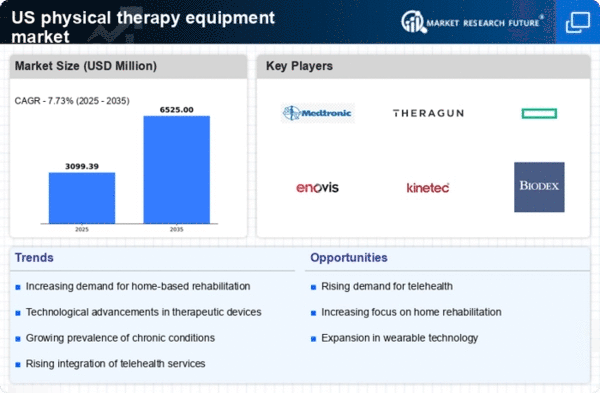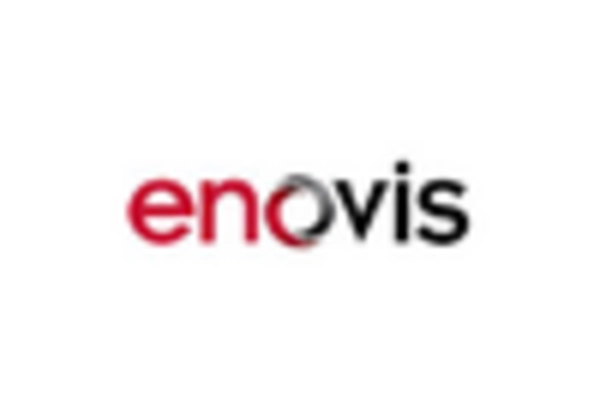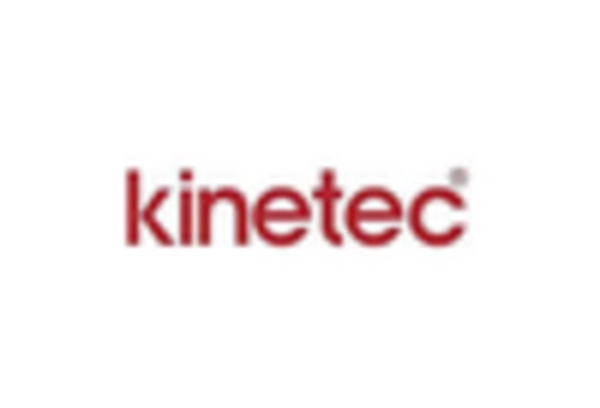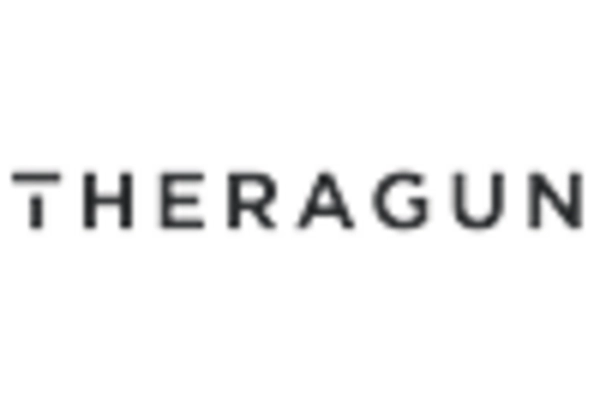Integration of Telehealth Services
The integration of telehealth services in physical therapy is transforming how patients access care. With the rise of digital health platforms, physical therapists can now provide remote consultations and follow-up sessions, which has become increasingly popular among patients seeking convenience. This trend appears to be particularly beneficial for those with mobility issues or those living in rural areas, where access to physical therapy services may be limited. Data suggests that telehealth utilization in physical therapy has increased by over 50% in the past year, indicating a strong shift towards remote care. As telehealth continues to evolve, it is likely that the demand for specialized physical therapy equipment that supports remote monitoring and virtual sessions will also rise. This integration not only enhances patient engagement but also expands the reach of physical therapy services, thereby positively impacting the physical therapy-equipment market.
Rising Prevalence of Chronic Conditions
The physical therapy-equipment market is significantly influenced by the rising prevalence of chronic conditions among the US population. Conditions such as obesity, diabetes, and arthritis are becoming increasingly common, leading to a greater need for physical therapy interventions. Data indicates that nearly 60% of adults in the US are living with at least one chronic condition, which often necessitates ongoing physical therapy for management and rehabilitation. This trend is prompting healthcare providers to invest in specialized physical therapy equipment designed to address the unique needs of these patients. As the demand for effective treatment options grows, the physical therapy-equipment market is likely to expand, driven by the need for innovative solutions that cater to chronic condition management.
Emphasis on Personalized Treatment Plans
The physical therapy-equipment market is witnessing a shift towards personalized treatment plans, which are tailored to meet the specific needs of individual patients. This trend is driven by advancements in assessment technologies and a deeper understanding of patient outcomes. Healthcare providers are increasingly recognizing that customized rehabilitation programs can lead to more effective results, thereby enhancing patient satisfaction and recovery rates. As a result, there is a growing demand for equipment that can support personalized therapy regimens, such as adjustable resistance machines and specialized modalities. This emphasis on individualized care is likely to propel the physical therapy-equipment market forward, as facilities seek to adopt tools that facilitate tailored treatment approaches.
Growing Awareness of Rehabilitation Benefits
The physical therapy-equipment market is experiencing a surge in demand due to growing awareness of rehabilitation benefits. As more individuals recognize the importance of physical therapy in recovery from injuries and surgeries, the market is likely to expand. According to recent data, approximately 30% of adults in the US have engaged in some form of physical therapy, highlighting a significant shift in attitudes towards rehabilitation. This growing awareness is driving healthcare facilities to invest in advanced physical therapy equipment, thereby enhancing the overall quality of care. Furthermore, educational campaigns and community outreach programs are contributing to this trend, as they emphasize the role of physical therapy in improving mobility and quality of life. Consequently, the physical therapy-equipment market is poised for growth as more patients seek these services.
Increased Investment in Healthcare Infrastructure
The physical therapy-equipment market is benefiting from increased investment in healthcare infrastructure across the US. As healthcare facilities expand and modernize, there is a growing need for advanced physical therapy equipment to meet the demands of a diverse patient population. Recent reports indicate that healthcare spending in the US is projected to grow by 5.4% annually, with a significant portion allocated to rehabilitation services. This investment is likely to enhance the capabilities of physical therapy departments, allowing them to offer a wider range of services and improve patient outcomes. Additionally, government initiatives aimed at improving healthcare access and quality are further driving this trend. As facilities upgrade their equipment and technology, the physical therapy-equipment market is expected to experience substantial growth, reflecting the ongoing commitment to enhancing rehabilitation services.

















